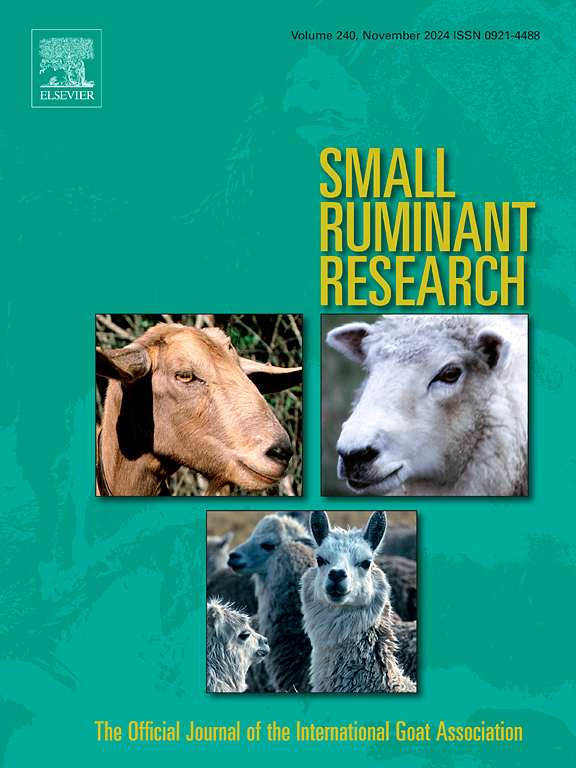饲养小反刍动物动机的决定因素:来自加纳北部的证据
IF 1.6
3区 农林科学
Q2 AGRICULTURE, DAIRY & ANIMAL SCIENCE
引用次数: 0
摘要
本研究旨在确定在加纳北部饲养小反刍动物的动机和影响农民饲养小反刍动物动机的因素。该研究随机选取了400只小反刍动物。采用多项logistic模型进行实证分析。结果表明,小反刍动物养殖户饲养小反刍动物主要是为了食物、安全/保险、收入来源和养老。结果进一步表明,相对于食物动机,信贷对饲养小反刍动物的养老动机有负向影响。相对于食物动机,动物价值对养老动机有正向影响。相对于食物动机,年龄对储蓄动机有负向影响。相对于食物动机,动物价值对储蓄动机有积极的影响。此外,月收入和其他类型的业务对收入动机的正向影响相对于食品动机。此外,相对于粮食动机,多年的教育和其他类型的农业活动对安全/保险动机有积极的影响。这项研究揭示了饲养小反刍动物的农民饲养动物的动机以及影响他们动机的因素。本文章由计算机程序翻译,如有差异,请以英文原文为准。
Determinants of motives for keeping small ruminants: Evidence from the Northern Ghana
This study aims to identify the motives for keeping small ruminants and factors that influence farmers’ motives for keeping small ruminants in Northern Ghana. A sample of four hundred small ruminant holders were randomly selected for the study. Multinomial logistic model was used for empirical analysis. The results show that small ruminant farmers mainly keep the small ruminants for food, security/insurance, source of income, and pension. The results further show that credit has a negative effect on pension motive for keeping small ruminants relative to food motive. The value of animals has a positive effect on the pension motive relative to food motive. Age has a negative influence on saving motive relative to food motive. Animal value has a positive effect on saving motive relative to food motive. Also, monthly income, and other type of businesses have positive influence on income motive relative to food motive. Also, years of education and other type of farming activities have positive influence on security/insurance motives relative to food motive.
The study brings to light small ruminant farmers’ motive for keeping animals and factors that influence their motives.
求助全文
通过发布文献求助,成功后即可免费获取论文全文。
去求助
来源期刊

Small Ruminant Research
农林科学-奶制品与动物科学
CiteScore
3.10
自引率
11.10%
发文量
210
审稿时长
12.5 weeks
期刊介绍:
Small Ruminant Research publishes original, basic and applied research articles, technical notes, and review articles on research relating to goats, sheep, deer, the New World camelids llama, alpaca, vicuna and guanaco, and the Old World camels.
Topics covered include nutrition, physiology, anatomy, genetics, microbiology, ethology, product technology, socio-economics, management, sustainability and environment, veterinary medicine and husbandry engineering.
 求助内容:
求助内容: 应助结果提醒方式:
应助结果提醒方式:


